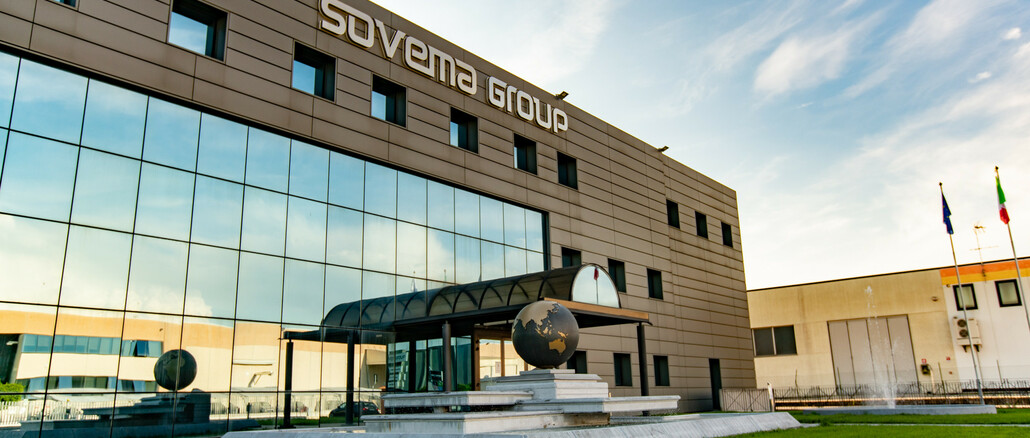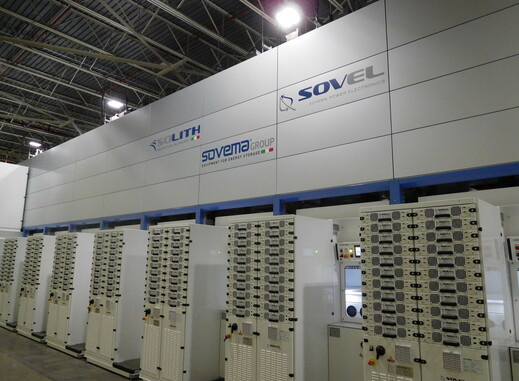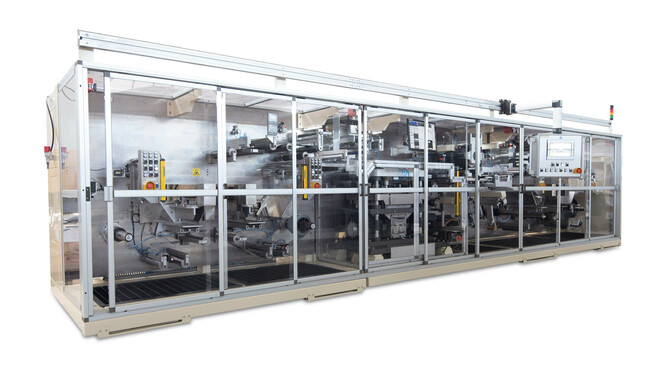
Schuler acquires the Italian machine manufacturer Sovema Group and aims to become a system supplier in battery cell production for the automotive industry and other sectors. Together with Sovema, Schuler will develop machines and lines required by gigafactories around the world for the mass production of lithium-ion batteries. The availability of such batteries in large quantities is an essential prerequisite, especially for the success of environmentally friendly e-mobility in road traffic.

© Schuler
According to estimates, the offered storage capacity of lithium-ion batteries produced annually will increase approximately fivefold worldwide by 2030 compared to 2020. One third of the planned capacity is to be built in Europe. In addition to Germany, new Gigafactories are planned in Italy, Spain, France, Great Britain, Sweden, Finland, Poland and Hungary.
One of the world’s leading suppliers of equipment for battery production
Sovema, headquartered in Villafranca di Verona, Italy, with additional subsidiaries in the USA and China, is one of the leading international suppliers of equipment for the production of high-quality battery cells. By building appropriate machines for pilot and laboratory projects, the company has made a name for itself in the automotive sector as well as other industries and counts some of the world’s best-known battery manufacturers among its customers. In addition, Sovema is the world’s only supplier of automated turnkey plants for the mass production of lead-acid batteries. The Sovema Group employs a good 170 people and recently reported sales of around 50 million euros.
“With Schuler as owner, we now combine Sovema’s technology expertise with our know-how in manufacturing complex lines for the networked production of parts and components in large volumes,” said Schuler CEO Domenico Iacovelli. “This gives Schuler the potential to become one of the leading suppliers able to provide turnkey technological equipment to giga-factories for the production of lithium-ion battery cells in the key process steps of cell assembly and cell forming.”
“We see Schuler’s entry as the new owner as a great opportunity for Sovema to develop our full technological potential and play an important role in the development of Gigafactorys,” explains CEO Massimiliano Ianniello. “Until now, our size has allowed us to serve our customers with high quality and individual customization. As part of the Schuler Group, we will now finally be able to achieve the volumes required to meet the massive demand for battery manufacturing equipment in Europe and beyond.”
Schuler already offers production lines for the economical mass production of both prismatic and cylindrical battery cell housings.

© Schuler
Li-ion cells and their production
The lithium-ion cell is at the heart of battery packs installed in electric vehicles and determines their performance in terms of energy density, charge/discharge capability and service life. Currently, there are three main formats on the market: cylindrical, prismatic or pouch cells. The first process step in the assembly for cylindrical battery cells is the so-called winding, in which anode and cathode foils are superimposed and wound separately from separator foils. In pouch cells, anode and cathode foils are first separated and then stacked in a repeating cycle of anode, separator, cathode, separator and so on. Prismatic cells can be produced using both methods. After contacting the arrester foils, the winding or stack is inserted into the cell housing and then filled with the electrolyte.
Formation refers to the initial charging and discharging processes of the battery cell. In this process, a solid electrolyte layer (SEI) is formed at the anode, which is necessary for the functionality of the battery cell. The process lasts up to 24 hours and results in a release of gas. Only then can the cell be sealed. The last process step is “aging”: the cells are stored on high shelves for up to three weeks in order to identify short circuits and check the cell properties. If the open-circuit voltage no longer changes during this period, production is complete. At this stage, final inspections are required to confirm the quality of the cells before they are assembled into modules and then into packs.
100 percent shareholding
Schuler will become the sole owner of Sovema in the future. Over the past five years, the Göppingen-based technology company has systematically expanded its classic product range of highly efficient press lines. The company is now a leader in the digitalization and networking of forming technology and increasingly offers machines in the field of sustainable technologies. In addition to battery housing production, this also includes plants for the manufacture of sheet metal for electric motors and for the production of fuel cells and electrolyzers for the hydrogen industry.
The Sovema Group has expertise in cell assembly and formation, from the production of electrodes to the finished cell, with particular competencies both in the automation of the process and in the power electronics used for formation and testing. Sovema was founded in 1969 as a division of the lead-acid battery manufacturer Uranio, based in Verona, Italy, and has been independent since 1992. This was followed in 2011 by the establishment of the Solith business unit for the manufacture of cells and modules for lithium-ion batteries and the two power electronics brands for battery assembly and testing (Sovel and Bitrode). Today, the company also has sites in St. Louis (Missouri, USA) and Tianjin (China).

